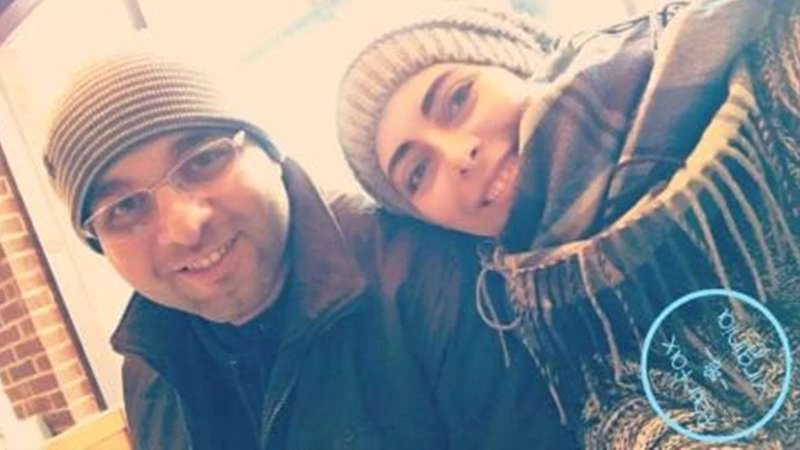The internet, cell phones, video calls and the many international flights that crisscross the globe on a daily basis help those who have family members living in different countries to stay connected.
Such is the case for Nabila Alhaffar and her husband Moustafa, a second year resident of Internal Medicine at MedStar Georgetown University Hospital in Washington, D.C.
Moustafa and Nabila are J1 and J2 visa holders who have been peacefully living together in their home just across the Potomac River from the nation’s capital in the state of Virginia, one of the most culturally diverse areas of the country.
When she flew to Doha on January 8 to visit her ailing mother, Nabila had no idea that she would end up being one of the victims of an executive order signed by U.S. President Donald Trump on the very day she was scheduled to fly back to the U.S.
The fact that Moustafa and Nabila were born in Syria makes them possible terrorists in the minds of Trump and many of his supporters.
It is hard to believe that Trump’s executive order cancelling all visas previously issued for passport holders of seven different countries designated as “high risk” wasn’t specifically intended to target Syrians since the only country mentioned in the travel ban was Syria.
In addition to those holding passports from Syria, Iraq, Iran, Sudan, Libya, Somalia, and Yemen, the travel ban included green card holders and J1 and J2 visa holders legally living in the U.S., simply because they happened to have been outside the country when the order was signed.
Even though Moustafa had called Nabila to warn her there might be trouble, she was surprised to be singled out by an airline attendant while waiting in queue for an entry stamp from passport control at Washington DC’s Dulles Airport and asked how many pieces of luggage she had.
Curious as to why she was being treated differently this time, Nabila questioned the attendant who told her not to worry and to finish with passport control.
When Nabila’s turn came to have her passport stamped, an officer took her papers, fingerprinted her then told her to come with him.
Nabila said that when she told the officer on the way how she had never had to go through this procedure before, and how unusual she thought it was, he responded by saying he knew nothing.
When she persisted in asking what was going on, the Customs and Border Protection agent finally said that her visa had been cancelled and after arriving at a designated holding area she was told to sit and wait.
Knowing that her husband was waiting for her, Nabila finally approached the agents and asked to know what was going to happen next.
To her dismay Nabila was told that she had to leave the country and go back to where she had come from.
Heartbroken at hearing such news, Nabila told the agents she had no place to go back to and that her home was in Virginia with her husband and that she wanted to see him. She also asked to speak to an attorney but both requests were denied.
Nabila was one of 109 people said to have been detained in the first 24 hours of the travel ban, but few of them were forced to leave the country, or received the same harsh treatment that she did.
While insisting to know the reason for her visa cancellation one of the officers began yelling at her and demanding to know her nationality.
After responding that she was Syrian, Nabila said he continued to yell at her saying “You’re not an American so you cannot say that your home is here! You also cannot say your visa belongs to you! No, it belongs to the US and is not yours so you have to go back where you came from!”
Nabila told them that her husband was a physician at Georgetown University Hospital and after requesting a lawyer once again, was ordered to go sit back down after taking her cell phone away from her.
She was fingerprinted a second time and asked to sign some papers which she refused to do because she did not understand them.
She was then told that if she signed she would be able to apply for a new visa; but if she refused she would be banned from entering the U.S. for five years… so she signed.
Less than two hours after her arrival in Washington D.C., Nabila was headed back to Doha without ever seeing her husband.
It wasn’t until she was switching planes in Dubai that she realized that the only document returned to her in the US had been her Syrian passport; her visa papers, her copy of her husband’s visa papers and her marriage contract (which ironically she had carried with her as a precautionary measure) had been kept by the agents at Dulles Airport.
When asked by Orient Net how she felt about all the Americans protesting Trump’s travel ban, Nabila said;
“American people are good people and I have not faced any racist attitudes. Rather I used to always receive praise and compliments on the colors of my scarf.”
“I say to American people, thank you from the heart for your support. I had lost hope that there is any justice or freedom in all the world, but the way American people stood next to me proved to me that they are steadfast and strong enough in defending their country.”



التعليقات (0)